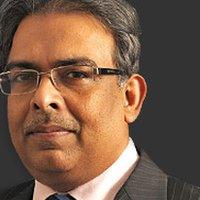The hunger-striking Indians demanding US asylum
- Published
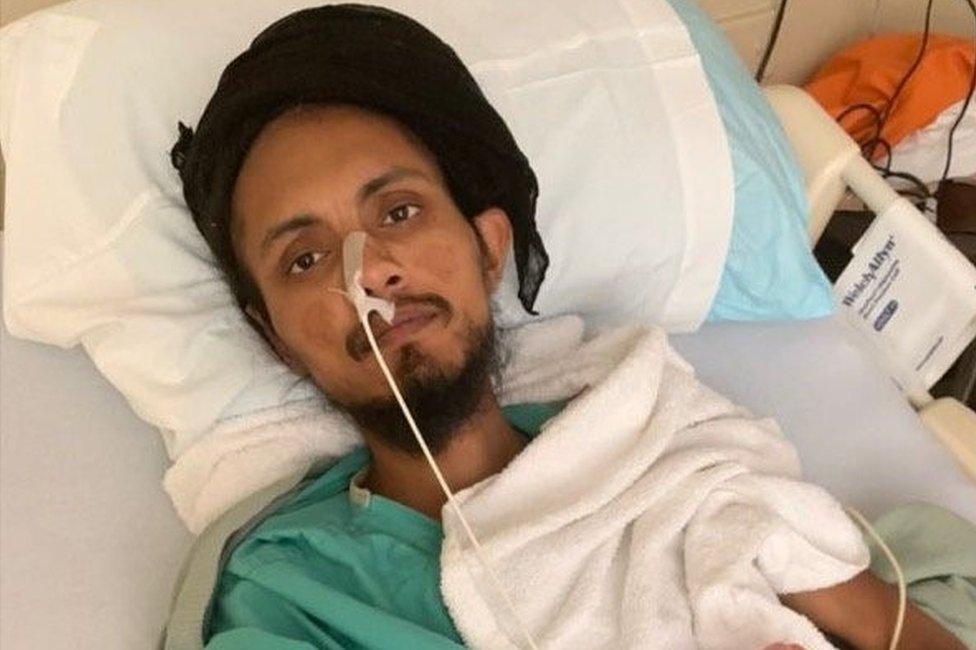
Gurjant Singh from Punjab says he is a victim of "political persecution"
Two Indian men are expected to be released soon from an immigration detention facility in El Paso, Texas, where they were on hunger strike for 74 days.
Ajay Kumar, 33, and Gurjant Singh, 24, have spent a year in detention facilities in the US after they were apprehended on its busy southern border.
It took them more than two months to travel by air, sea and land from northern India to the US-Mexico border where they turned themselves over to the border patrol.
Both sought asylum, saying they were being persecuted by political rivals back home.
Mr Kumar's appeal is pending before the US Board of Immigration Appeals, and Mr Singh is challenging an immigration judge order rejecting his appeal. He is seeking a new hearing with a "fair and impartial judge".
Both men were on hunger strike until last week protesting against their detentions and demanding to be freed while their cases were being decided by immigration judges. Immigration officials in the US have the power to detain or release single adult asylum seekers while their cases are being heard.
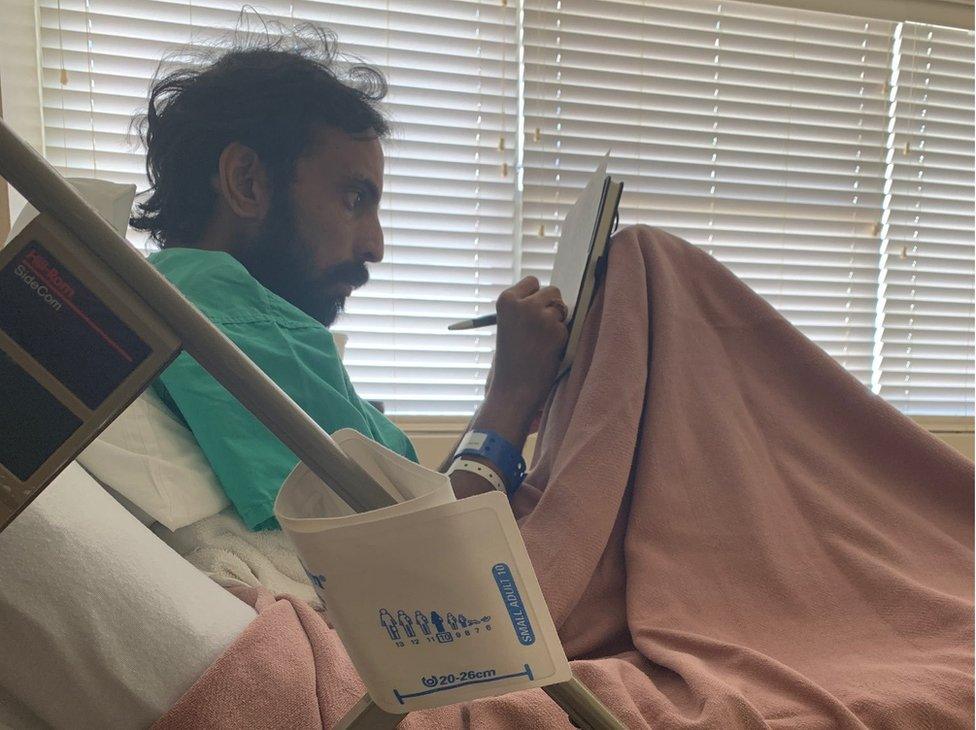
Ajay Kumar has been in detention for more than a year
The two men are among more than 9,000 Indians apprehended by the US Border Patrol in 2018, nearly three times as many as in 2017, external. A substantial number of them are from the northern states of Punjab and Haryana. Some are from the western state of Gujarat.
In July, border patrol agents found the body of a six-year-old Indian girl in a remote desert in Arizona , external- she had died trying to cross with a group of people into the US.
The majority of Indians are asylum seekers, but rejections are high. More than 7,000 Indians were returned from the US between 2015 and 2017,, external according to homeland security.
Many of them have "said repeatedly that they feel El Paso area Immigration and Customs Officials [ICE] officials discriminate against them in detention, an accusation officials have denied", according to Robert Moore, a former editor of El Paso Times who has been tracking the cases closely.

More than 9,000 Indians were apprehended by the US Border Patrol in 2017
A month after Mr Kumar and Mr Singh began their hunger strike, a court ordered that the two men be force-fed to keep them alive.
"The nurse took out a long tube, and the doctor said, 'Eat or we will insert this in your nose. I refused and they started inserting the tube again… They repeated this three times until my nose was swollen," Mr Kumar said in a deposition to the court.
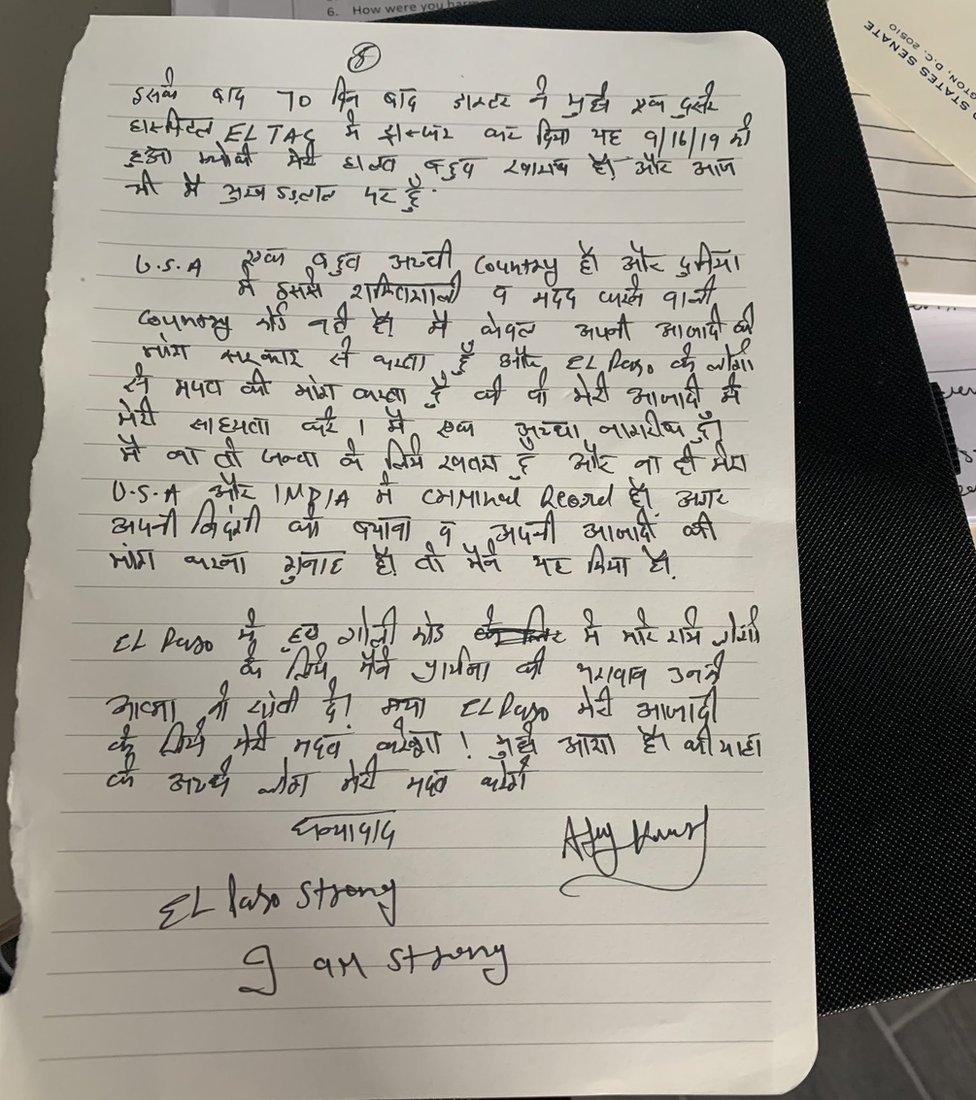
Ajay Kumar wrote letters from his hospital bed demanding freedom
Mr Singh lost 17kg (37lb) in detention, and says being force-fed was painful and humiliating.
"My client describes this process as torture. This was done while other hunger strikers were made to watch, and so it was also humiliating. The tube was left in for several weeks, causing discomfort and pain. My client was unable to sleep for several weeks due to the pain from the tube, but also from his hunger strike," Jessica Miles, Mr Singh's lawyer, told me.
"I have represented hunger strikers before, and I was shocked at Mr. Singh's condition and very concerned that he would die of cardiac arrest, as were doctors that I consulted with about his condition."
Lawyers say force-feeding causes severe nosebleeds and vomiting, while the UN has warned it could amount to torture, and is medically unethical. Immigration officials say force-feeding is carried out for the migrants' own health and safety. Going without food for long periods of time can leave people at risk of long-term physical and mental health conditions.
Ajay Kumar says he came from a farming family in Haryana, and was involved with an opposition party in the state, which is governed by the Hindu nationalist BJP.
"He says his sister was the victim of an acid attack by political rivals, and his father was murdered [in India] when he was under detention in the US," Linda Corchado, Mr Kumar's attorney, told me.
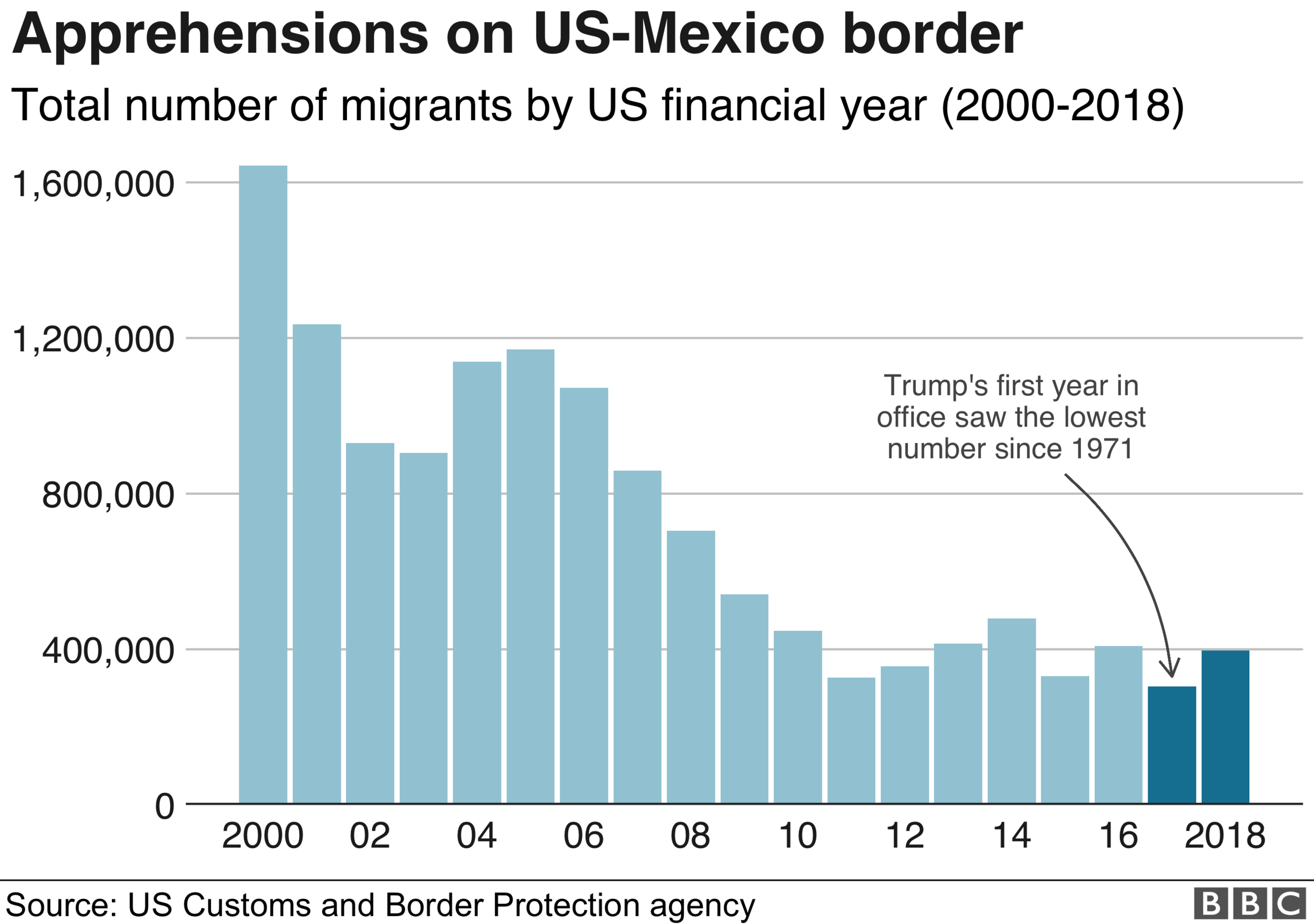
"It is difficult to bring corroborative evidence to prove your claims when you are under detention."
Mr Singh, who comes from Punjab, has told his lawyer that he was "involved with a political party, beaten several times because of his political activities, and threatened with death if he did not join the opposition party".
It is not clear how many Indians are in detention centres in El Paso, but attorneys visiting the area in February found there were more than 200 detained men with Indian last names.
"The main issues facing asylum seekers in detention are lack of language access, denial of religious accommodations, medical neglect, solitary confinement, force-feeding, denial of bond or parole, and prolonged or indefinite detention rather than processing of asylum claims," Lakshmi Sridaran of New York-based South Asian Americans Leading Together group, told me.
Hunger strikes are also becoming increasingly common, say immigration lawyers in El Paso.
Lawyers and activists say 13 Indian men held at the border were refusing food and were being force-fed in El Paso alone this year, sparking a controversy over the medical ethics of the exercise.
What happens if Mexico doesn't stem the migrant flow?
"Hunger strikes are becoming increasingly common as people are detained by default with no possibility of release," Margaret Brown Vega, a volunteer co-ordinator with the group Advocate Visitors with Immigrants in Detention, told me.
In the past, illegal immigrants from Cuba, Bangladesh, Cameroon, Venezuela and Nicaragua have gone on hunger strikes in detention centres. They have usually lasted less than a couple of weeks. Indian detainees seem to have gone on hunger strikes for the longest periods of time.
In April, two Indian men who were force-fed during another hunger strike lasting 74 days , externalwere freed after eight months at an El Paso detention centre. "Their protest drew international attention, particularly after federal judges authorised ICE to force-feed the detainees through a feeding tube," Mr Moore reported.
Jasvir Singh, 22, and Rajandeep Singh, 23, described force-fed three times a day as "painful and dehumanising".
After they are medically cleared and freed, Ajay Kumar and Gurjant Singh will be living with local sponsors in El Paso. Their movements will be restricted and they will be fitted with ankle monitors or electronic monitoring devices so the authorities know where they are.
"They are welcome to stay as long as they like. We've found a doctor outside who has volunteered to check on them while they recover in the weeks to come," one of the sponsors told me. "I am fully confident that these fine young men will, through their actions, demonstrate that their detention was totally unnecessary to begin with".
"Ajay is focussed on his appeal and feeling better. But he's anxious and feeling a lot of trauma," said Ms Cochado.
"He is terrified of being returned to India."

Read more from Soutik Biswas

Follow Soutik on Twitter at @soutikBBC, external
